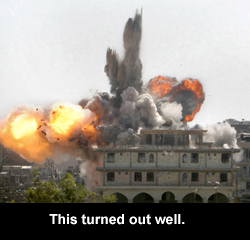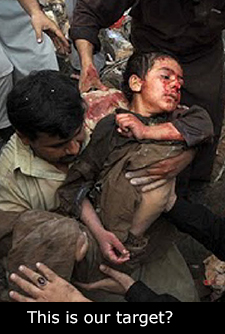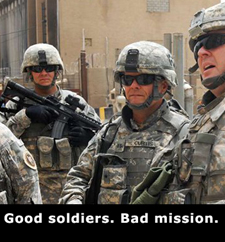I’m not in the greatest state of mind right now, so I’ll be brief. I just wanted to take a moment to amend my post from last week, Examining the Three Crises Three. In short, I missed a crisis or two. And the one that appears to be percolating up into the national consciousness is the Ukraine Crisis.
Now, the national conversation about this conflict is enough to drive anyone mad. I have never seen so many policy cross-currents between left and right as over this question. Trumpist right-wingers are adapting a narrow anti-war stance that appears to be counseling caution with respect to Russia and crackpot aggression toward China. “Muscular” liberals and centrists appear to be hell bent on building an iron wall around the Soviet …. I mean, Russia. Dogs are dancing with cats. What a mess.
What about the Minsk agreement?
There is a diplomatic solution to this. Anatol Lieven, writing for The Nation, details The Minsk II agreement, worked out in 2015, which provided for limited autonomy for some of the disputed parts of Ukraine. He writes:
“A solution exists that was drawn up by France, Germany, Russia, and Ukraine and endorsed by the US, the European Union, and the United Nations. This solution corresponds to democratic practice, international law and tradition, and America’s own past approach to the settlement of ethnic and separatist conflicts. Moreover, it requires no concessions of real substance by either Ukraine or the US.” (Ukraine: The Most Dangerous Problem in the World)
Lieven works with the Quincy Institute, a foreign policy think tank headed by Andrew Bacevich, none of whose researchers are likely to show up on Morning Joe anytime soon.
So why are we ….? Oh, yeah.
We appear to be beefing up our presence in Eastern Europe, preparing to wield crippling sanctions against Russia, etc. The one thing we don’t appear eager to do is simply admit that Ukraine is not in the short line for NATO membership. Frankly, it shouldn’t be in the long line either. And most of the commentators closest to power claim that the U.S. has no intention of defending Ukraine militarily within its borders.
Okay, but what is this conflict about? Why are we facing off at the front lines of what has the potential to be a disastrous, perhaps world-ending war? My guess is that it’s because we always lead with the military. That’s where we hold the strongest hand, so we always play it. See Iraq. See Libya. See Syria.
Instant money – just add congress
Congressional leadership on both sides of the aisle – Democrats and Autocrats (formerly Republicans) – are falling over each other trying to shovel money into Ukraine’s military. The price tag is around $500 million.
When it comes to this sort of thing, there’s always money. When it comes to pulling people out of poverty, even children, the cupboard is bare. Let’s hope this little investment in bellicosity doesn’t trigger the global holocaust we’ve been arming up for since before I was born.
luv u,
jp


 That said, our President is on the brink of another useless military adventure. As this is debated, will anyone in Congress ask, “When has this ever gone well?” Kosovo? Don’t say Kosovo. We made the killing worse, predictably. Afghanistan? Just as ungovernable as ever, only now with more dead people. Iraq? Please! Libya? Now divided between two hostile governments; a failed state shedding refugees by the thousand. Now the conversation is centered not so much on whether we should fight in Iraq / Syria, but rather how heavily we should get involved. I hear a lot of T.V. talkers advocating for a ground war. They should consider whether they would want their kids to fight it. Or if maybe they’d want to fight it themselves. Anything short of that is just talk.
That said, our President is on the brink of another useless military adventure. As this is debated, will anyone in Congress ask, “When has this ever gone well?” Kosovo? Don’t say Kosovo. We made the killing worse, predictably. Afghanistan? Just as ungovernable as ever, only now with more dead people. Iraq? Please! Libya? Now divided between two hostile governments; a failed state shedding refugees by the thousand. Now the conversation is centered not so much on whether we should fight in Iraq / Syria, but rather how heavily we should get involved. I hear a lot of T.V. talkers advocating for a ground war. They should consider whether they would want their kids to fight it. Or if maybe they’d want to fight it themselves. Anything short of that is just talk. Our drone war in Pakistan-Afghanistan, and essentially everywhere else, runs on a similar principle. It isn’t as all-out, of course, but it appears to be nearly as random. And just as every living thing in the Vietnamese countryside was assumed to be Viet Cong, every military age male in the tribal areas of Pakistan is, by definition, an extremist, a combatant, a terrorist, and therefore the target of killer drones, piloted by some dude who works at a terminal in a trailer about fifty miles from where I’m sitting right now.
Our drone war in Pakistan-Afghanistan, and essentially everywhere else, runs on a similar principle. It isn’t as all-out, of course, but it appears to be nearly as random. And just as every living thing in the Vietnamese countryside was assumed to be Viet Cong, every military age male in the tribal areas of Pakistan is, by definition, an extremist, a combatant, a terrorist, and therefore the target of killer drones, piloted by some dude who works at a terminal in a trailer about fifty miles from where I’m sitting right now. That’s all good, but it’s just a step in the right direction. Gay Americans are still second-class citizens, barred from full civil rights as of this moment. As of now, there is an institutional necessity to allow gays to join the military – with an all-volunteer force like ours, we cannot wage two (or perhaps three) simultaneous wars without providing incentives to talented people of every persuasion to participate. The trouble is, when they return to civilian life (those who don’t choose to make the military a permanent career), they find themselves unable to marry, to raise a family, or to hold certain types of positions in some states. Not a dissimilar situation to that of the late 1940s, early 1950s, when black soldiers returned to the segregated south and a nearly equally racist north. My guess is that it’s just a matter of time before the crumbling edifice of discrimination against gays falls entirely to pieces.
That’s all good, but it’s just a step in the right direction. Gay Americans are still second-class citizens, barred from full civil rights as of this moment. As of now, there is an institutional necessity to allow gays to join the military – with an all-volunteer force like ours, we cannot wage two (or perhaps three) simultaneous wars without providing incentives to talented people of every persuasion to participate. The trouble is, when they return to civilian life (those who don’t choose to make the military a permanent career), they find themselves unable to marry, to raise a family, or to hold certain types of positions in some states. Not a dissimilar situation to that of the late 1940s, early 1950s, when black soldiers returned to the segregated south and a nearly equally racist north. My guess is that it’s just a matter of time before the crumbling edifice of discrimination against gays falls entirely to pieces.